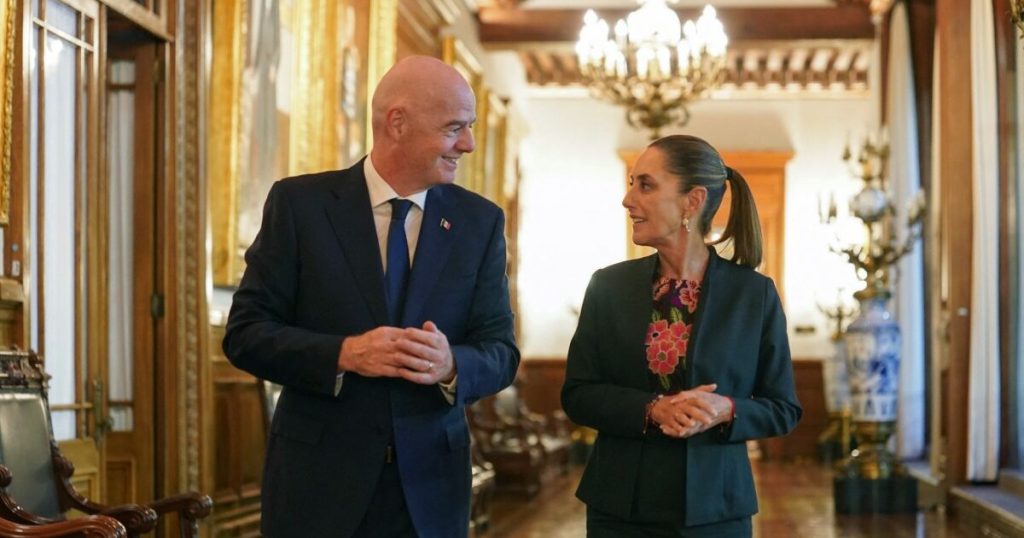The 2026 FIFA World Cup, a monumental event in the world of football, is set to be co-hosted by North America’s powerhouses: the United States, Canada, and Mexico. Mexican President Claudia Sheinbaum’s recent meeting with FIFA President Gianni Infantino underscored the significance of this event for Mexico and its preparations for the global spectacle. The meeting served as a platform to discuss the progress made thus far and to reiterate the pivotal role Mexico City will play in the tournament’s opening ceremonies. As the iconic Azteca Stadium prepares to host the inaugural match on June 11, 2026, a sense of anticipation and excitement builds within the nation. This historic venue, steeped in footballing legacy, will once again witness the world’s finest athletes compete on the grandest stage.
Mexico’s participation extends beyond the opening ceremony, with three major cities – Mexico City, Guadalajara, and Monterrey – set to host a total of thirteen matches. These vibrant urban centers will showcase the nation’s passion for football, offering fans from across the globe an immersive cultural experience alongside the thrill of world-class competition. The preparations underway reflect Mexico’s commitment to delivering a seamless and memorable tournament, emphasizing the importance of infrastructure, security, and fan engagement. The collaborative efforts between the Mexican government, FIFA officials, and local organizing committees demonstrate a shared vision to create an unforgettable spectacle.
The global nature of the 2026 World Cup is further highlighted by FIFA President Infantino’s prior meeting with then US President Donald Trump. This meeting, held in the United States, announced the selection of the Kennedy Center in Washington D.C. as the venue for the official World Cup draw on December 5th of that year. The symbolic presence of the World Cup trophy during the announcement underscored the significance of the event and the anticipation surrounding the tournament. The involvement of high-profile political figures like President Trump highlighted the event’s significance beyond the realm of sport, emphasizing its potential to foster international cooperation and diplomacy.
The 2026 World Cup arrives at a complex geopolitical juncture, with tensions between the United States, Canada, and Mexico simmering beneath the surface due to trade and tariff disputes initiated by the Trump administration. However, the shared passion for football presents a unique opportunity to transcend political divides and foster unity across borders. The tournament offers a platform for cultural exchange, mutual understanding, and shared celebration, potentially easing some of the existing tensions through the unifying power of sport.
The preparations for the 2026 World Cup symbolize more than just a sporting event; they represent a significant undertaking with far-reaching implications for the host nations. The tournament has the potential to boost tourism, stimulate economic growth, and enhance infrastructure development in Mexico, the United States, and Canada. Beyond the economic benefits, the World Cup provides an opportunity for these nations to showcase their cultural diversity and national pride on the global stage.
The 2026 FIFA World Cup promises to be a landmark event, bringing together nations in a celebration of football and cultural exchange. As the host nations finalize preparations, the world eagerly anticipates the thrill of competition, the vibrant displays of national pride, and the unifying power of sport. The tournament’s legacy will extend beyond the final whistle, leaving a lasting impact on the host nations and the global football community.














